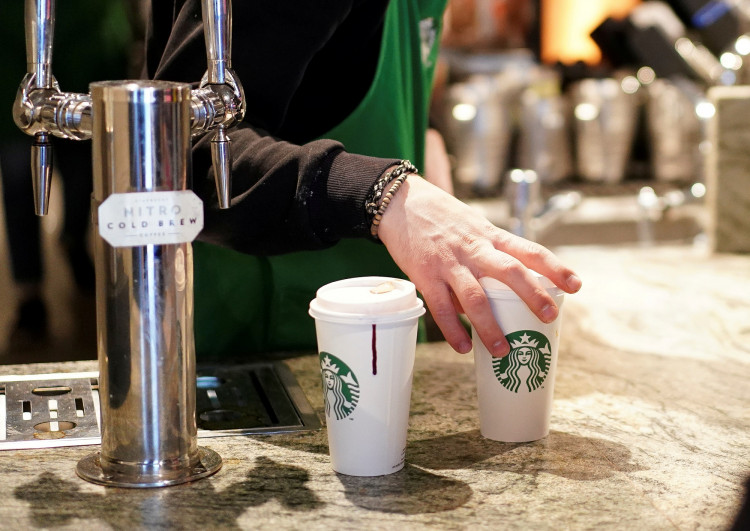Numerous Chinese netizens turned to social media on Wednesday to express their displeasure at Starbucks' 1-2 yuan ($0.16-0.32) price increase on a variety of products, including lattes, Americanos, and a range of other food items.
The move comes as the popular coffee chain in China is embroiled in a brand image and food safety issue.
Starbucks' first price hike in China since 2018 as a result of rising operating costs is being followed by similar increases in other Asian regions, including South Korea.
Local smaller coffee chains and boutique coffee shops, such as Luckin, have posed a threat to Starbucks by adapting fast to local requirements and tastes.
Tim Horton's also increased the pricing of nine different beverages by one or two yuan in January of this year.
Although a tea-drinking nation, China is one of the world's fastest growing coffee markets, with about 110,000 outlets in major cities by April, according to consultants Deloitte, as young people drive consumption which, however, remains behind the United States and Europe.
However, the company informed Reuters that packaged coffee beans and goods such as mugs were not affected.
Based on a report by the state-backed Shanghai Securities Journal, China's Luckin Coffee increased the price of various beverages by around 3 yuan to cover operational costs such as rent, labor and raw material.
Luckin and Time Hortons did not react quickly to a request for comment from Reuters.
Starbucks Global Chief Executive Officer Kevin Johnson stated during a February 3 results call that the company plans to continue raising prices in the coming months to offset a margin squeeze caused by inflation and epidemic-related labor market concerns.
Starbucks began adjusting the prices of its menu items in October 2021.
According to industry analyst Euromonitor, Starbucks is still the leading coffee and tea chain shop operator in China. It commands a market share of 41.7%, followed by local chain operators HeyTea, Luckin Coffee, and Nayuki's Tea.
Starbucks now operates about 5,550 locations in the local market, up around 600 locations from a year before.
Starbucks presented its financial report for the first quarter of fiscal year 2022 on February 1, revealing that same-store sales in China decreased by 14%, the average customer unit price reduced by 9%, and transaction volume decreased by 6%.
In recent years, China has seen the emergence of a slew of new domestic coffee companies, with Manner and M Stand set to get financial investment in 2021.





